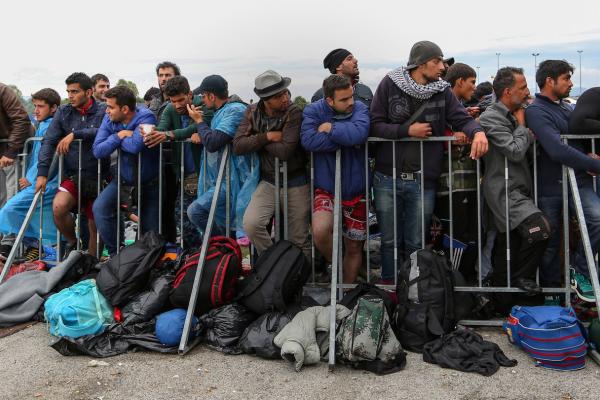The last two weeks have brought immense amounts of tragedy to our world. As we continue to pray for peace globally, I’ve started to ask the question how can we let our prayer be more than a hashtag? What the events in the world (Ferguson, Beruit, Paris, etc.) in the last year have told us is that we have to take seriously our mandate to preemptively work for peace. We must consider what it would be like to participate in the answers to our prayers.
Prayer opens us up to a responsive lifestyle. When we pray we get to ask the question: How can we/I/my community participate in the answer to this prayer? Participation is partnership language.
We partner with God because we are created in the image of God. The word image in Hebrew is selem and can be translated idol or statue. This is ancient language that would mean that an idol is a visible representation of an invisible being. We, as God’s image, are God’s visible representation in the world.
God’s been telling the story of restoration since Genesis when we were created selem Elohim, in the image of God. We were created into perfect communion with God. From Genesis 3 until the end of the Old Testament, we see a narrative of a people in exile and God giving opportunities for reconciliation and restoration of relationship that humanity is incapable of accepting. Reconciliation is an exchange of something worthless (our condition of sin) for something immeasurably worthy (communion with God).
In the New Testament we see a biblical narrative through Jesus of now-but-not-yet restoration. In Jesus we see the coming of the Kingdom of God and get to be reconciled back to God. We even get a glimpse of an eternity where there is no more death or mourning or crying or pain.
If we truly believe we are the image of God, it changes how we approach the image of God in the world. Our call then is to actively partner with God in taking the world somewhere.
When we look at Paris, Beirut, Syrian refugees, ISIS, and all the events of the last year we are invited to ask: What’s our role in the story of restoration and redemption that God is telling in the world?
I believe that we, as the church, have an active role to play as God’s people in helping bring about that eternity. The church doesn’t just get to take an active role in justice. The church needs to take an active role in justice to help the Kingdom of God permeate earth in ways that further restore humanity back to God.
How can we help bring peace to this world so that it is on earth as it is in Heaven?
One of the frustrations about the current refugee crisis is that many who are not open to helping refugees also embrace an economic model that makes refugees inevitable. In neoliberalism, moving labor across national boundaries is fully acceptable when necessary to produce cheap consumer goods and services. Plenty of examples exist, but we don't need to look far. When San Diegans want cheap labor to maintain their yards or build their patios, Mexican laborers are welcomed. Just don't let them cross the border seeking safety from violence. Factories around the world employ people who have migrated from another country who are willing to work for cheaper wages than local laborers.
When some of those "foreigners" (a term with less and less meaning these days) create tensions or are recruited by terrorist networks, the very laborers recruited to work or refugees seeking security catch a large portion of blame. In such situations, I don't know more to do than to love my neighbor.
We need to rethink our collective definition of “neighbor." One way to think of "neighbor" is to define neighbor as the ones who have touched the clothes that I am currently wearing (or the food that I eat and the car that I drive, and the electronics I use, etc.).
In James 5 we read, "Look! The wages you failed to pay the workmen who mowed your fields are crying out against you. The cries of the harvesters have reached the ears of the Lord All-powerful." I don't pay anyone to mow my fields, but through very complex networks of middlemen, I pay people all over the world for my consumer products. Am I paying them a fair wage? Frankly, most of the time I have no idea. But I have a hunch that I am not paying them wages I would myself be happy to receive.
The result of all of this leads me to the daily question: What would it look like in my context if God did exactly what God wanted?
You are created in the image of God, now go partner with God in doing something with the world.
Got something to say about what you're reading? We value your feedback!

